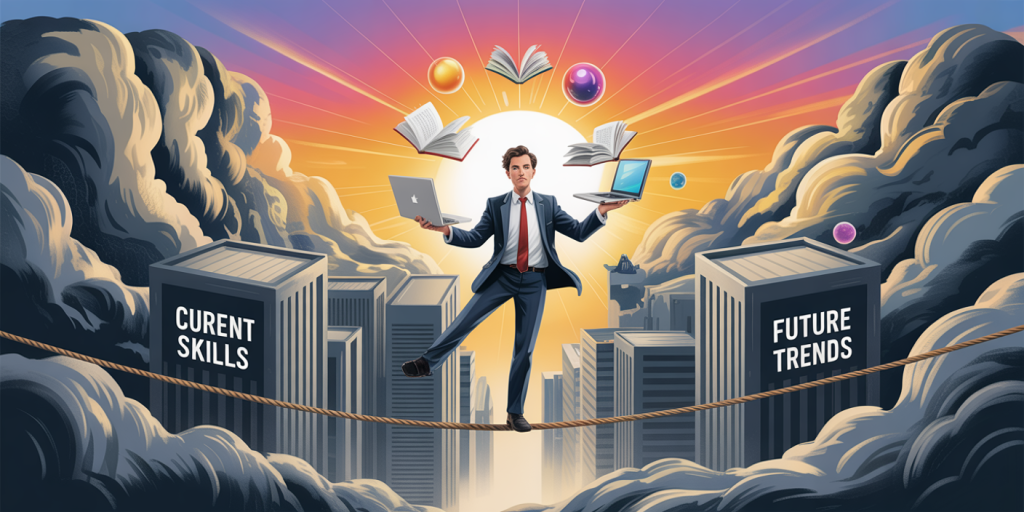How to Stay Relevant in a Rapidly Changing Industry
In today’s world, industries are evolving faster than ever before. Technological advancements, shifting consumer behaviors, market disruptions, and globalization have all contributed to a business environment where change is constant and often unpredictable. For professionals and companies alike, staying relevant is no longer just an advantage—it’s a necessity for survival. In this article, we explore strategies, mindsets, and actionable steps that individuals and organizations can adopt to maintain their relevance in a rapidly changing industry.
1. Embrace a Growth Mindset
One of the most important traits to develop is a growth mindset—a belief that skills and intelligence can be developed through dedication and hard work. This concept, popularized by psychologist Carol Dweck, is essential in an environment where roles, tools, and best practices are in constant flux.
Professionals who adopt a growth mindset are more likely to:
- View challenges as opportunities to learn
- Accept feedback constructively
- Persist in the face of setbacks
- Seek out new knowledge and skills proactively
Companies must also foster this mindset among their teams by promoting a culture where experimentation is encouraged, failure is treated as a learning tool, and continuous improvement is embedded into everyday work.

2. Continuous Learning and Skill Development
Staying current requires ongoing education. This doesn’t always mean pursuing formal degrees—though they can help—but rather staying informed and agile by learning through various formats:
- Online Courses: Platforms like Coursera, Udemy, LinkedIn Learning, and edX offer thousands of courses on emerging technologies, business strategies, and soft skills.
- Certifications: Earning industry-specific certifications can validate your expertise in key areas.
- Books and Podcasts: Thought leaders in every industry are publishing books and podcasts that provide deep insights into new trends and strategies.
- Workshops and Webinars: Attending events, whether virtual or in-person, allows for both learning and networking.
Skill development should also be strategic. Focus on both hard skills (e.g., programming, data analysis, automation tools) and soft skills (e.g., communication, leadership, adaptability) that are in demand in your field.
3. Stay Updated with Industry Trends
To remain competitive, professionals must keep their finger on the pulse of their industry. That means regularly tracking trends, innovations, and major shifts.
Some effective ways to do this include:
- Subscribing to industry newsletters and magazines
- Following influential analysts, thought leaders, and executives on social media
- Attending conferences and trade shows
- Joining professional associations or communities
- Reading white papers, market research reports, and case studies
Being well-informed not only helps you anticipate change but also equips you to adapt faster and offer insights that can benefit your organization or clients.
4. Innovate Proactively, Not Reactively
Innovation is key to staying ahead, but waiting for disruption to occur before acting is a recipe for obsolescence. Instead, strive to be proactive.
For individuals:
- Suggest new workflows, technologies, or business models
- Identify inefficiencies and propose solutions
- Experiment with side projects to test ideas
For companies:
- Invest in research and development
- Encourage cross-functional collaboration
- Allocate resources to test emerging technologies like AI, blockchain, and automation
- Create internal labs or innovation hubs
The goal is to lead change, not follow it. Even small innovations can have significant impact when they’re aligned with long-term strategy and customer needs.
5. Leverage Data and Analytics
In today’s landscape, data is a powerful asset. Making decisions based on intuition alone is no longer sufficient. Instead, data-driven decision-making helps companies and professionals understand:
- Customer behavior
- Market trends
- Operational efficiencies
- Product performance
Learning how to collect, interpret, and apply insights from data—even at a basic level—can greatly enhance your ability to remain relevant. This could involve tools like:
- Google Analytics
- Excel and Power BI
- CRM platforms
- AI-assisted analytics tools
Knowing how to harness the power of data can make you indispensable to your team or organization.

6. Build a Resilient and Adaptable Culture
Organizational culture plays a crucial role in weathering change. A rigid or hierarchical culture may resist innovation, while an agile, resilient one will thrive in dynamic conditions.
Core elements of a resilient culture include:
- Open communication: Ideas, concerns, and feedback flow freely
- Empowerment: Employees at all levels feel confident making decisions
- Collaboration: Teams work cross-functionally to solve problems
- Psychological safety: Employees are not afraid to take risks or fail
For individuals, cultivating personal adaptability—being open to new roles, tools, and workflows—will position you as a valuable asset during transitions or restructuring.
7. Strengthen Your Professional Network
Your professional network can be an invaluable resource when navigating change. Networking helps you:
- Discover new job opportunities
- Learn about industry changes ahead of time
- Gain mentorship or peer support
- Partner on projects and ideas
To grow your network:
- Stay active on LinkedIn and other professional platforms
- Attend meetups, conferences, and local events
- Join online communities or Slack groups
- Offer value—share insights, introduce contacts, or provide feedback
Relationships often matter as much as skills when it comes to staying relevant and progressing in your career.
8. Focus on Customer-Centricity
Whether you’re an entrepreneur or employee, staying relevant means consistently meeting the needs of your audience—especially as those needs evolve.
Being customer-centric involves:
- Conducting regular user research
- Gathering customer feedback through surveys or interviews
- Monitoring social media sentiment
- Creating feedback loops in your products or services
When you understand what your customers value, you can tailor your offerings more effectively. Businesses that align their innovation with customer expectations will maintain relevance—even in turbulent markets.
9. Collaborate Across Generations and Disciplines
Today’s workforce is more diverse than ever before. It spans multiple generations, cultures, and skill sets. Learning how to collaborate across these differences can unlock new perspectives and solutions.
Younger employees may bring fresh tech-savvy approaches, while seasoned professionals offer critical context and wisdom. Meanwhile, cross-disciplinary collaboration—such as between marketers and engineers—can drive creativity and well-rounded innovations.
To thrive, embrace diversity in thought and skill, and look for opportunities to build bridges rather than silos.
10. Revisit and Reinvent Your Personal Brand
Finally, professionals must treat themselves like brands. Your personal brand is how others perceive your value, expertise, and relevance. It’s communicated through:
- Your resume and portfolio
- Your online presence (especially LinkedIn)
- Your public speaking, writing, and social media content
- The way you communicate and interact
To stay relevant:
- Audit your personal brand every 6–12 months
- Refresh your portfolio with new work
- Highlight your learning journey and recent skills
- Share your insights via blogs, videos, or podcasts
A well-managed personal brand keeps you top of mind for opportunities and reflects your ability to evolve with your industry.

11. Develop Digital Intelligence and Tech Fluency
No matter your industry, technology is at the heart of transformation. Even if you’re not in IT, understanding the impact of emerging technologies on your field is critical to staying relevant.
This involves:
- Learning the basics of AI, machine learning, blockchain, and automation, even at a conceptual level
- Exploring how these technologies are being applied in your industry (e.g., AI in marketing, automation in HR, blockchain in logistics)
- Becoming proficient with digital tools that boost your productivity, such as CRMs, automation platforms, data analysis tools, and project management systems (like Trello, Notion, ClickUp)
- Keeping up with the digital platforms that matter most to your audience or industry
Being tech-fluent doesn’t mean becoming a programmer—it means knowing how to speak the language of technology, recognize its potential, and make strategic decisions accordingly.
Staying relevant in a rapidly changing industry is not a one-time task—it’s a continuous, intentional effort. It requires a mix of mindset, skill, adaptability, and awareness. Those who thrive are not necessarily the most experienced or the most talented, but rather those who are the most resilient, curious, and proactive.
Change is inevitable, but irrelevance is not. By investing in yourself, staying informed, and aligning with the needs of your industry and audience, you can maintain your edge—and help shape the future of your field instead of being left behind by it.
